

-
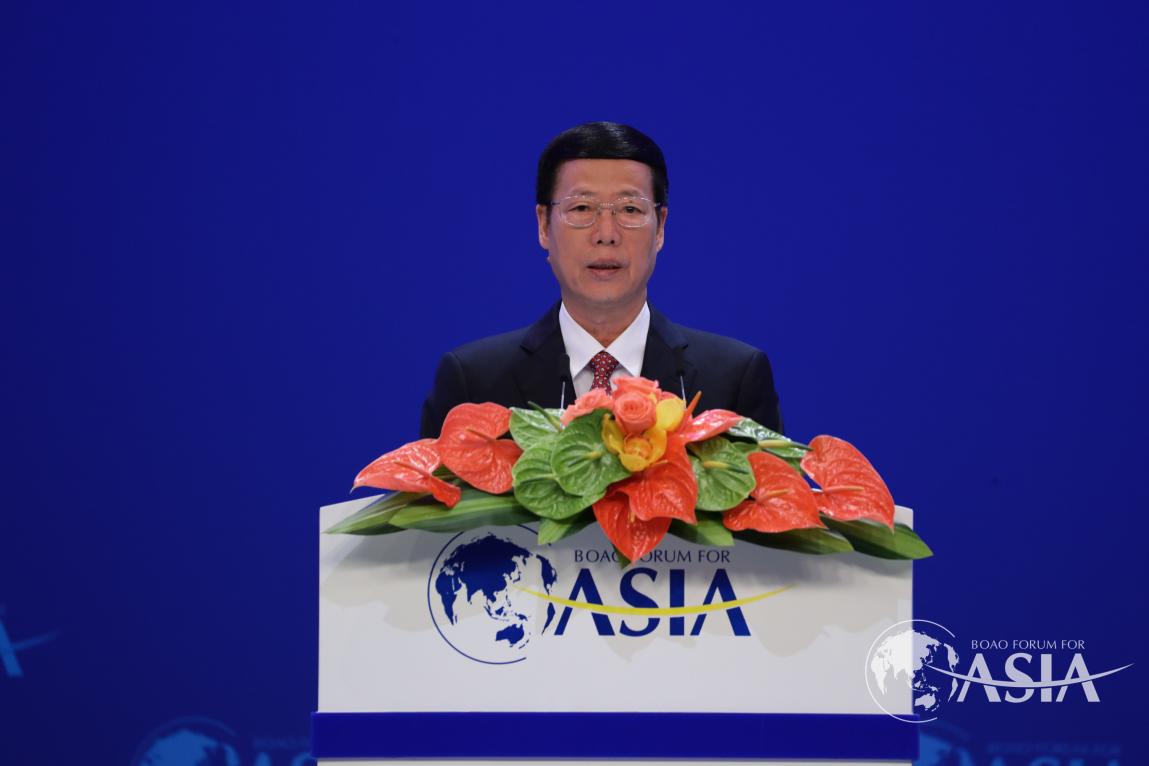
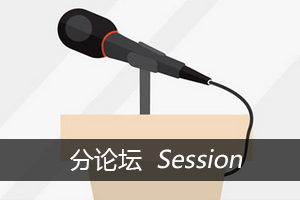 The Future of EducationSession 1
The Future of EducationSession 1Time:13:30 - 14:45
Place:(ICC, Level 1, Dong Yu Grand Ballroom A)
Description:
- Out of frustration over the way children are taught today, many institutions and invididuals are trying new ideas and models of education. Why are they frustrated? How are they going to reform education?
-

 FinTech: How will it change Finance?Session 2
FinTech: How will it change Finance?Session 2Time:13:30 - 14:45
Place:(ICC, Level 1, Dong Yu Grand Ballroom B)
Description:
- P2P and crowdfunding, popularly known as Internet banking in China, are facing tightened regulation and distrust from investors after several high-profile Ponzi-scheme cases. In its place rises the concept of FinTech. Are there fundamental differences between the two?
- Which benefits can FinTech bring to clients that traditional finances don’t?
- Is FinTech good news for small and medium-sized enterprises which have limited access to affordable financing?
-

 1997 Asian Financial Crisis: Lessons Learned and Not Learn...Session 3
1997 Asian Financial Crisis: Lessons Learned and Not Learn...Session 3Time:15:15 - 16:30
Place:(ICC, Level 1, Dong Yu Grand Ballroom A)
Description:
- Starting from the latter half of 2014, emerging markets such as Thailand, Malaysia and Indonesia have again suffered from capital outflows and currency depreciation, which is reminiscent of the Asian Financial Storm 20 years ago.
- The crisis, however, was not repeated. Emerging markets in Asia show greater resilience than expected. Which lessons have they drawn from the crisis 20 years ago to build such resilience?
- Are there lessons not learned?
-

 Bring Craftsmanship back to ManufacturingSession 4
Bring Craftsmanship back to ManufacturingSession 4Time:15:15 - 16:30
Place:(ICC, Level 1, Dong Yu Grand Ballroom B)
Description:
- Manufacturing is not just about mass production. It is the commitment to craftsmanship that distinguishes Germany and Japan from their peers. As the Factor of the World, China is rethinking what is lacking in its manufacturing power amid increaseing calls for renewed emphasis on craftsmanship.
- Why does craftsmanship matter in modern factories?
- Craftsmanship has been part of the Chinese tradition. Why is it lost in the industrialization drive?
- What makes a modern “craftsman”? What can be learned from the education and practice of Germany and Japan?
-

 New Prospects for Asian Media CooperationMedia Leaders Roundtable 1
New Prospects for Asian Media CooperationMedia Leaders Roundtable 1Time:16:00 - 18:00
Place:(ICC, Level 1, Dong Yu Grand Ballroom D)
Description:
- Traditional media in Asia did not fully reflect the reality and vitality of this continent. However, as reform and changes are sweeping across this part of the world, traditional journalism is being transformed, and there is a growing consensus on the concept of an Asian community of shared destiny. Within such a context, the future of Asia is connected to the measures taken by Asian media to have their voices heard in the international community, recount the stories of Asia, and show the world the picture of this continent in an impartial, comprehensive manner through mutual cooperation.
- The Roundtable will invite over 20 media leaders from dozens of countries along the “Belt and Road” to discuss the new prospects for Asian media cooperation in a rational and pragmatic way.
-

 Why the Private Investment Subdued?Private Sector Roundtable 2
Why the Private Investment Subdued?Private Sector Roundtable 2Time:16:30 - 18:30
Place:(ICC, Level 1, Peacock 1)
Description:
- Growth of investment by private enterprises, a key economic driver, continues to drop recently, slowing down to an alarming point that cannot be ignored. Driven by multiple factors, more and more Chinese enterprises were embarking on the cause of going global in 2016, and outbound investment by private enterprises also showed an explosive growth along with such “tailwind”. However, the contraction associated with the over-capacity reduction and supply side structural reform in the Chinese economy, and a rising “headwind” of de-globalization will adversely affect investment. Therefore, it is necessary to inspire new drivers to change the situation and rebuild the momentum of investment.
- How to look at and respond to the sustaining weak private investment?
- How to leverage various drivers - the Belt and Road, international capacity cooperation, etc. to regain confidence in investment and achieve a leap-forward upgrade?
- Will cross-border investment by private enterprises accelerate or slow down?
- How to prevent risks and expand global business footprint?
-

 The Innovators’ DNASession 5
The Innovators’ DNASession 5Time:17:00 - 18:15
Place:(ICC, Level 1, Dong Yu Grand Ballroom A)
Description:
- What makes the DNA of an innovator?
- What is behind the sustained success of innovation hubs such as the
Silicon Valley?
- How are startup nations or innovation-driven economies special in system, institution or culture?
-

 Surviving the Capital CrunchSession 6
Surviving the Capital CrunchSession 6Time:17:00 - 18:15
Place:(ICC, Level 1, Dong Yu Grand Ballroom B)
Description:
- “Internet plus” startups had witnessed exponential growth driven by enthusiastic venture capital before plummetting in the latter half of 2015. Isn’t this strange given ample liquidity worldwide?
- Is the so-called “capital crunch” felt across the spectrum, or just for a few niche sectors such as O2O in life services? And why?
- Some argue that it is more a cooling down and returning to normal on the part of investors, which is actually a good thing for the long-term sustainable growth of the sector. Without the fanfare, which niche sectors and what kind of startups will win out?
-

 Young Leaders Roundtable 3
Young Leaders Roundtable 3Time:19:45 - 21:15
Place:(ICC, Level 1, Dong Yu Grand Ballroom C)
Description:


-

 IPR: Why it Matters for China?Breakfast 1
IPR: Why it Matters for China?Breakfast 1Time:07:00 - 08:30
Place:(BFA Hotel, Level 2, the Pavilion)
Description:
- What’s driving the innovation?How can a nation or business
realize the sustainable innovative development?
- The Breakfast provides you with a great opportunity to hear insights
from IP experts from the leading technology company, SIPO, WIPO
and well-known IP scholars about the IPR protection and its
implications to innovation, the key roles that the government, world
organization and business should play to drive the innovation, IPR
reform and collaboratio -

 Asset Securitization: the Good and BadSession 7
Asset Securitization: the Good and BadSession 7Time:09:00 - 10:15
Place:(ICC, Level 1, Dong Yu Grand Ballroom A)
Description:
- Debt/equity swap was first introduced into China in 1998 as part of the SOE reform. It again came up in the debate and remarks of decision makers recently as China struggles to deleverage, together with options such as loan securitization, CDS, etc.
- Which lessons should China learn from the subprime crisis in asset securitization?
- How much regulation should be applied to the growing derivatives market, and what form should it take?
- Can a country’s financial institutions gain the benefits of an active derivatives markets without creating potentially destabilizing risks for the institutions and for the nation as a whole?
-

 Automobile RecallSession 8
Automobile RecallSession 8Time:09:00 - 10:15
Place:(ICC, Level 1, Dong Yu Grand Ballroom B)
Description:
- China is one of the largest and fastest-growing auto markets, yet still in its infancy when it comes to automobile recall, both in terms of the regulatory environment and execution
- Education of consumers: recall does not equal poor quality
- Responsibilities of car makers
-

 The 4th Industrial RevolutionSession 9
The 4th Industrial RevolutionSession 9Time:09:00 - 10:15
Place:(ICC, Level 1, Dong Yu Grand Ballroom C)
Description:
- There is no consensus yet on what the Fourth Industral Revolution is, which technological breakthroughs or revolution are driving it or how it will change the way of doing business. Germany, the United States and China have pioneered in one way or the other. How are their approaches and endeavors different from one another?
- Latecomer countries are always followers. Will the 4th Industrial Revolution offer a rare chance for them to take the lead?
- How will traditional manufacturing be affected?
-

 Global Competition for Capital: Re-defining the Chinese Ma...MNC China CEO Roundtable 4
Global Competition for Capital: Re-defining the Chinese Ma...MNC China CEO Roundtable 4Time:09:00 - 11:00
Place:(ICC, Level 1, Peacock 1)
Description:
- Overview: America's economy is strengthening and China's growth is stabilizing. But multinational companies cannot afford to relax. They face ever intensifying competition from local rivals in emerging economies, and newly unpredictable terms of trade with the United States. The Trump administration is promising to lighten regulation and lower taxes on companies at home, even as it flirts with protectionist measures against companies abroad. The aim is to make it easier for capital to prosper in America and harder for it to leave.
- What will this mean for emerging markets in the global fight for capital? And how should multinational companies respond? Will they be tempted to "tariff-hop": building American plants to serve American customers? Or should they wait and see whether the protectionist bark is worse than its bite? Are multinationals in China doubly challenged, facing both tougher access to America's market and tougher competition for China's consumers? The competition for capital has always been fierce. But the rules of the game have rarely been so unsettled.
-

 From “Made in Asia” to “Created in Asia”Asian Startups Roundtable 5
From “Made in Asia” to “Created in Asia”Asian Startups Roundtable 5Time:09:00 - 11:00
Place:(Dongyu Island Hotel, Hesheng Ballroom)
Description:
-

 ASEAN-China Governors/Mayors Dialogue 6
ASEAN-China Governors/Mayors Dialogue 6Time:09:00 - 11:00
Place:(Dongyu Island Hotel, Yiyong & Changyan Ballrooms)
Description:
-

 Has the Commodities Market Bottomed Out?Session 10
Has the Commodities Market Bottomed Out?Session 10Time:10:45 - 12:00
Place:(ICC, Level 1, Dong Yu Grand Ballroom A)
Description:
- Some argue that after three years of a bear market, commodity prices have finally bottomed out. Do supply and demand fundamentals support a bullish market?
- The US dollar appreciation and implications
- How are resource-rich countries doing in diversifying their economies and executing structural reforms?
-

 Capital and ControlSession 11
Capital and ControlSession 11Time:10:45 - 12:00
Place:(ICC, Level 1, Dong Yu Grand Ballroom B)
Description:
- Global economy is very uncertain. Business confidence is fragile.
Liquidity is ample. All these combine to make volatile capital flow the “new normal”, which in turn trigger financial market volatility in Asian and emerging economies. Why are these economies so prone to such volatility? What homework do they need so as to be better prepared?
- Is there a role for global, multilateral or bilateral coordination? Are there good examples?
- Capital control and the Tobin Tax
-

 The Rise of Live StreamingSession 12
The Rise of Live StreamingSession 12Time:10:45 - 12:00
Place:(ICC, Level 1, Dong Yu Grand Ballroom D)
Description:
- The live video streaming industry has experienced booming growth in the past two years as dozens of video and social media sites scrambled to add the updated capabilities to existing services. Credit Suisse Group analysts estimate the industry could top US$5 billion by the end of 2017, driven by cheap bandwidth and a growing population of young mobile users in China. Why the popularity and rise of live streaming all of a sudden?
- Market potential and business model
- Regulatory environment
- which contents is King?


-


-

 Globalization & Free Trade: the Asian PerspectivesPlenary Session
Globalization & Free Trade: the Asian PerspectivesPlenary SessionTime:10:30 - 12:00
Place:(ICC, Level 2, BFA Main Hall)
Description:
-

 An Insight into ShenzhenLuncheon
An Insight into ShenzhenLuncheonTime:12:15 - 13:45
Place:(Dongyu Island Hotel, Yiyong & Changyan Ballrooms)
Description:
-

 The Belt and Road: Dialogue with LeadersSession 23
The Belt and Road: Dialogue with LeadersSession 23Time:14:15 - 15:30
Place:(ICC, Level 1, Dong Yu Grand Ballroom A)
Description:
- How do leaders along the Belt/Road look at the Initiative?
- Case study: how do countries get involved and benefit by working together?
- Suggestions from leaders
-

 Global Economy: Moving Beyond Sub-HealthSession 24
Global Economy: Moving Beyond Sub-HealthSession 24Time:14:15 - 15:30
Place:(ICC, Level 1, Dong Yu Grand Ballroom B)
Description:
- The world economy is facing two fundamental challenges: the potential growth rate continues to decline, and the real growth continues to underperform the potential.
- How have factors determining the potential rate changed or deteriorated?
- Why has the world economy underperformed?
- Therapies for global economic subhealth
-

 Artificial Intelligence: Dialogue with ScientistsSession 25
Artificial Intelligence: Dialogue with ScientistsSession 25Time:14:15 - 15:30
Place:(ICC, Level 1, Dong Yu Grand Ballroom C)
Description:
- How much do we know about the human brain?
- How much of the knowledge has been applied to artificial intelligence?
-

 21st Century Maritime Silk Road: Islands Economic Cooperat...Session 26
21st Century Maritime Silk Road: Islands Economic Cooperat...Session 26Time:14:15 - 16:15
Place:(Dongyu Island Hotel, Hesheng Ballroom)
Description:
- The ocean plays an indispensible role in supporting the development of island economies. Entitled“New Future for the Marine Economy﹒Opening and Cooperation”, this session will draw efforts and wisdom for insular or ocean-related areas through the exchange of experience and ideas in marine economy development and other fields, to boost their inter-connection and prosperity, and to create a community with shared future for island economies.
-


-

 Austerity or Growth: It DependsSession 27
Austerity or Growth: It DependsSession 27Time:15:45 - 17:00
Place:(ICC, Level 1, Dong Yu Grand Ballroom A)
Description:
- Fiscal discipline is the foundation stone of long-term sustainable
growth for any economy, and has always been an integral part ofIMF policy recommendations to countries in crisis.
- Are decision-making going to the other extreme – debt/deficit phobia – nowadays and hesitant to take decisive actions to stimulate much-needed growth?
- The balancing art
-

 Labor Market Reform: Tough, But a Must-DoSession 28
Labor Market Reform: Tough, But a Must-DoSession 28Time:15:45 - 17:00
Place:(ICC, Level 1, Dong Yu Grand Ballroom B)
Description:
- Labor market is the hard part of structural reform. Rigidity and excessive generosity have inhibited vigor and resilience of the economy. Meaningful changes, however, may lose votes and trigger unrest.
- Starting from 2012, China began to see decline of working-age population, quickened ageing, drastic rise of wages and outflow of manufacturing. Its controversial labor law is blamed for hurting flexibility of the labor market.
- Which reforms are tough but necessary?


-

 Testing the Limits of Monetary PolicySession 32
Testing the Limits of Monetary PolicySession 32Time:09:00 - 10:15
Place:(ICC, Level 1, Dong Yu Grand Ballroom A)
Description:
- In the past few years, major central banks have tried various means to be accommodative, from QE, QQE, negative rates to helicopter money. Have central bankers exhausted all the tools? Is there a limit to monetary policy?
- To what extent can monetary policies address inadequacy of long-term demand?
- Will prolonged monetary easing fuel financial and property bubbles?
- Why hasn’t ample liquidity passed on to the real economy? What has gone wrong?
- Helicopter money: will it come true?
-

 The United States after the ElectionSession 33
The United States after the ElectionSession 33Time:09:00 - 10:15
Place:(ICC, Level 1, Dong Yu Grand Ballroom B)
Description:
- How different will the US be with a new president in office?
-

 Overseas Chinese CEO/Think Tank Roundtable 15
Overseas Chinese CEO/Think Tank Roundtable 15Time:09:30 - 11:30
Place:(BFA Hotel, Level 2, the Pavilion)
Description:
-

 New Situation, New Opportunities and New Cooperation: open...Cross-Straits CEO Roundtable 16
New Situation, New Opportunities and New Cooperation: open...Cross-Straits CEO Roundtable 16Time:09:30 - 11:30
Place:(Dongyu Island Hotel, Hesheng Ballroom)
Description:
- The world economy is currently at its seven-year low with global trade growth slower than economic growth. Traditional economy growth engine slows down as the momentum of world economy shifts. Although new technologies emerge, new economic growth point has not been found.
- The mainland of China has attracted over $1.7 trillion overseas capital and invested abroad over $1.2 trillion cumulatively since its reform and opening-up. In the aftermath of international financial crisis, the Mainland’s annual average contribution to world economic growth accounts for more than 30%. The Mainland not only benefits from but also contributes to economic globalization. The Mainland’s fast economic growth provides a strong and consistent driving force to sustain stability and growth of global economy, while its joint development with other countries and regions makes world economy more balanced. The Mainland’s development is an opportunity to the world.
- Nowadays, the Mainland has been deeply integrated into the world economy as new trends emerge in cross-border investment and industrial transfer in a global context. In a released State Council document, the Mainland has announced 20 measures to further expand its opening-up, facilitate environment for fair competition, and attract more foreign investment. How can entrepreneurs from Taiwan grasp this opportunity for stronger growth?
- As cross-Straits relations are becoming increasingly grave and complex, how can we overcome difficulties and advance economic cooperation across the Straits so as to bring more benefits to compatriots on both sides?
-

 Asian Regional Cooperation Organization Roundtable 17
Asian Regional Cooperation Organization Roundtable 17Time:10:00 - 11:30
Place:(Dongyu Island Hotel, Hesheng Ballroom)
Description:
-

 FDI: Greenfield, or M&A?Session 34
FDI: Greenfield, or M&A?Session 34Time:10:45 - 12:00
Place:(ICC, Level 1, Dong Yu Grand Ballroom A)
Description:
- In 2015, for the first time, developing countries overtook developed countries as the largest source of FDI globally. What are the causes and global implications of this reversal?
- Statistics show that most of the FDI growth came from M&A deals during the year. Greenfield investments had stagnated. Most M&A deals happened in advanced markets, not emerging ones as in the past. Why?
- Given the current economic sluggishness, which regions and industries are most appealing to FDI?
- As a rising global investor, what can China learn from history lessons/experiences of other countries?
-

 Defining the Sharing EconomySession 35
Defining the Sharing EconomySession 35Time:10:45 - 12:00
Place:(ICC, Level 1, Dong Yu Grand Ballroom B)
Description:
- The controversy over car hailing regulation has again stirred the debate over the sharing economy. The sharing economy, regulators say, is about sharing idle resources with no negative implications for existing industries. Pareto Optimality rules.
- Do we have consensus on what the sharing economy should be like? What are the criteria? Who is qualified enough to make the definition?
- What does the future hold for the sharing economy?
-

 10th Anniversary of the Subprime Crisis: A Look BackSession 36
10th Anniversary of the Subprime Crisis: A Look BackSession 36Time:10:45 - 12:00
Place:(ICC, Level 1, Dong Yu Grand Ballroom D)
Description:
- The Black Monday in 1987, the Asian Financial Crisis in 1997 and the subprime crisis in 2007. The number of “7” may not be a curse if we have learned lessons from crises. But have we?
- Will the year 2017 be an exception?
-

 Healthcare Reform: Cracking the Hard NutsSession 37
Healthcare Reform: Cracking the Hard NutsSession 37Time:13:30 - 15:00
Place:(ICC, Level 1, Dong Yu Grand Ballroom A)
Description:
- Healthcare reform has never been easy. In China, the hard nuts are public hospital. When people complain about how difficult and expensive it is to see a doctor, it’s mostly public hospitals they refer to.
- Why is the reform so daunting? The Chinese government set a target for 2020. Is it achievable and how?
-

 Fundamentals of the Capital MarketSession 38
Fundamentals of the Capital MarketSession 38Time:13:30 - 15:00
Place:(ICC, Level 1, Dong Yu Grand Ballroom B)
Description:
- Transparency: the soul of the capital market
- What can the capital market do and not do?
- Regulator’s role
- The logic of market growth
- What does the Vanke incident tell us?
Guests
-
 Derek ABERLEPresident, Qualcomm Incorporated
De...
Derek ABERLEPresident, Qualcomm Incorporated
De...
-
 Gloria AIFounder and Host, iAsk Media
Gloria...
Gloria AIFounder and Host, iAsk Media
Gloria...
-
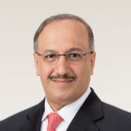 Yousef Abd...SABIC Vice Chairman & Chief Execut...
Yousef Abd...SABIC Vice Chairman & Chief Execut...
-
 Logan ALLINPartner, Formation Group
Logan Alli...
Logan ALLINPartner, Formation Group
Logan Alli...
-
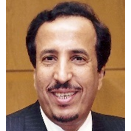 Saud bin A...Chairman, SABIC
Chairman, the Royal...
Saud bin A...Chairman, SABIC
Chairman, the Royal...
-
 Jose CHALV...Governor, Provincial Government of Pal...
Jose CHALV...Governor, Provincial Government of Pal...
-
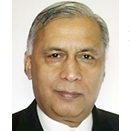 Shaukat AZIZFormer Prime Minister of Pakistan
H...
Shaukat AZIZFormer Prime Minister of Pakistan
H...
Review
-
2016
Asia's New Future:
New dynamic,New vision -
2015
Asia's New Future:Towards
a Community of Common Destiny -
2014
Asia's New Future:
Identifying New Growth Drivers -
2013
Asia Seeking Development for All:
Restructuring, Responsibility & Cooperation -
2012
Asia in the Changing World:
Moving Toward Sound & Sustainable Development -
2011
Inclusive Development:
Common Agenda and New Challenges -
2010
Green Recovery:
Asia's Realistic Choice for Sustainable Growth -
2009
Asia:
Managing Beyond Crisis -
2008
Green Asia:
Moving Towards Win-Win Through Changes -
2007
Asia Winning in Today's Global Economy
Innovation and Sustainable Development -
2006
Asia Searching for Win-Win:
The New Opportunities of Asia:
Driving Growth to the Next Level -
2005
Asia Searching for Win-Win:
New Role of Asia -
2004
Asia Searching for Win-Win:
An Asia Open to the World -
2003
Asia Searching for Win-Win:
Development Through Cooperation -
2002
New Century New Challenge
A New Asia
Economic Development and Cooperation















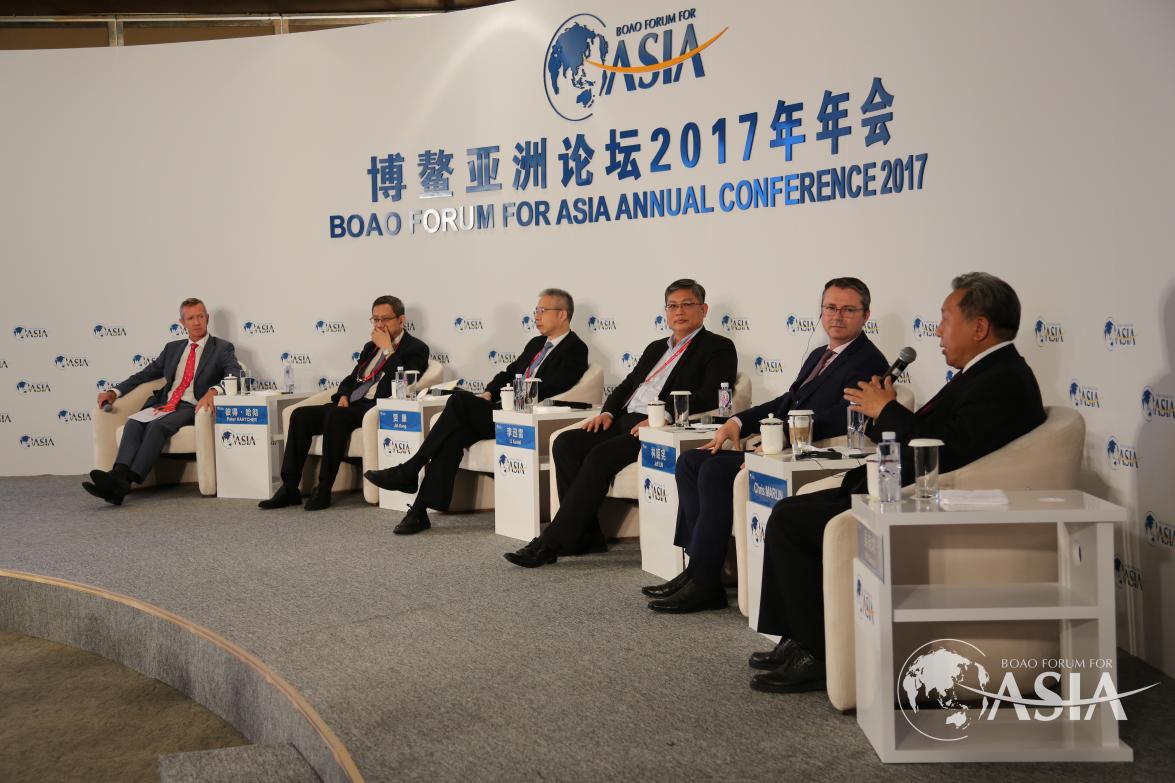
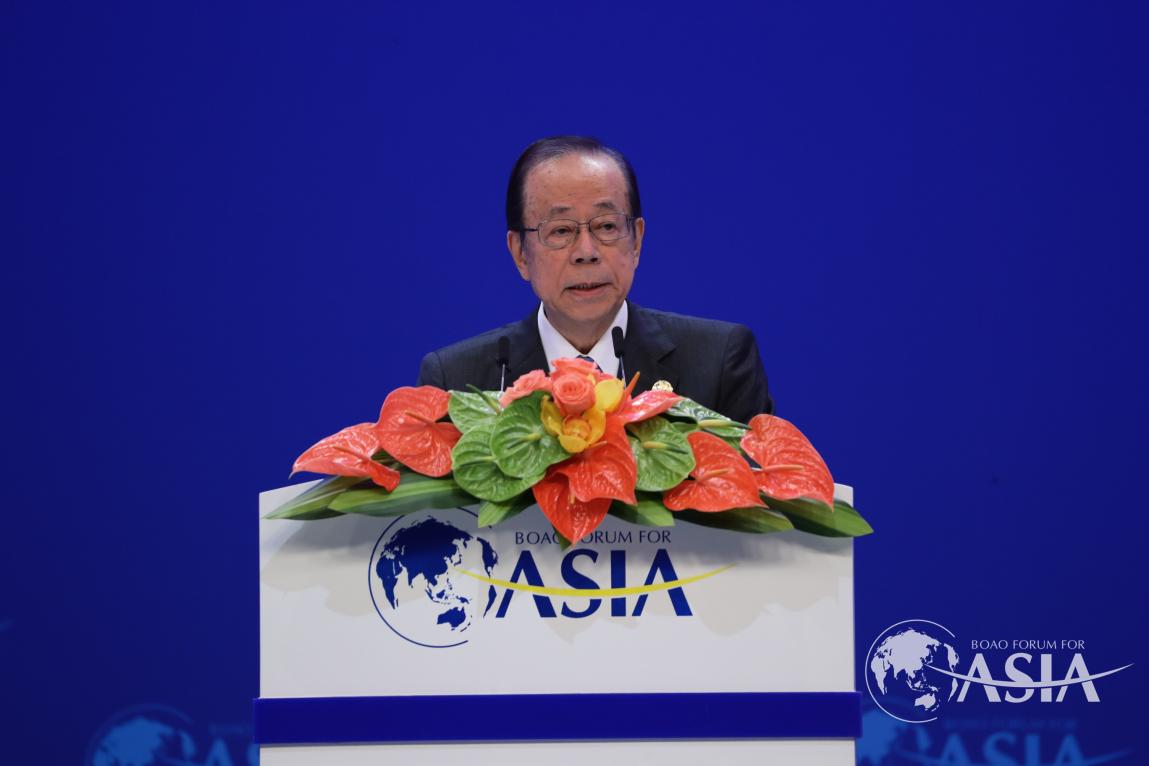
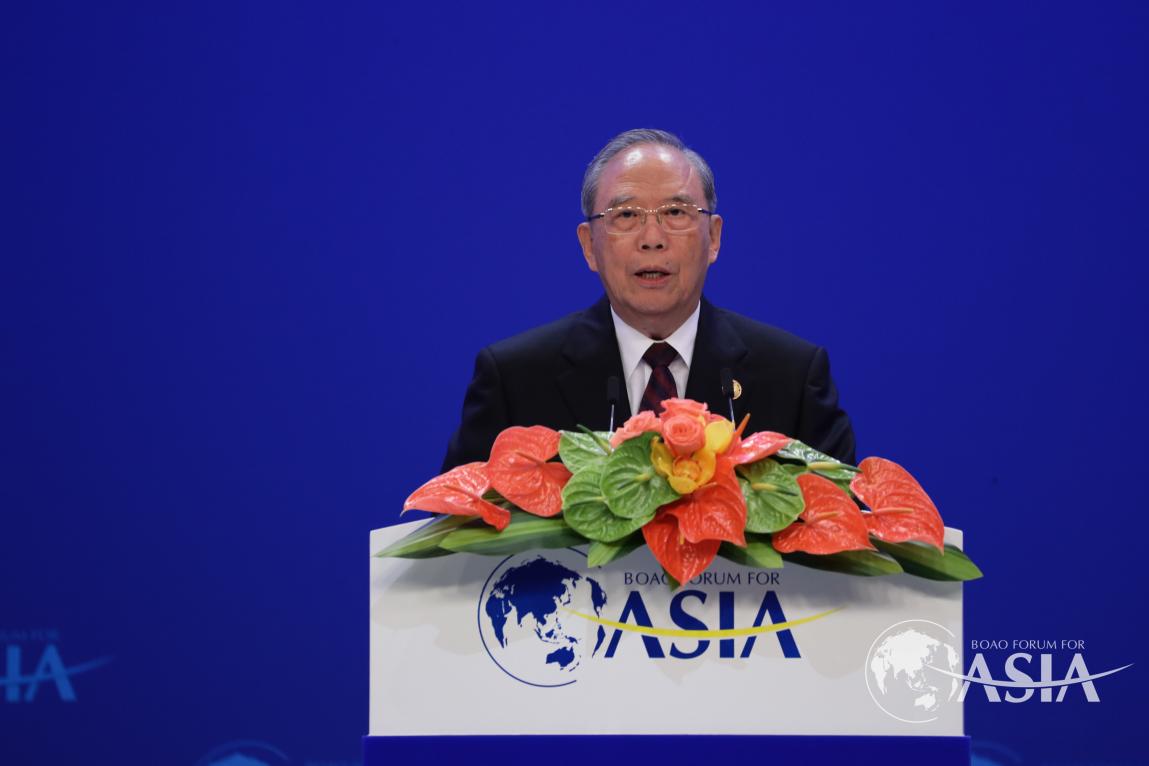
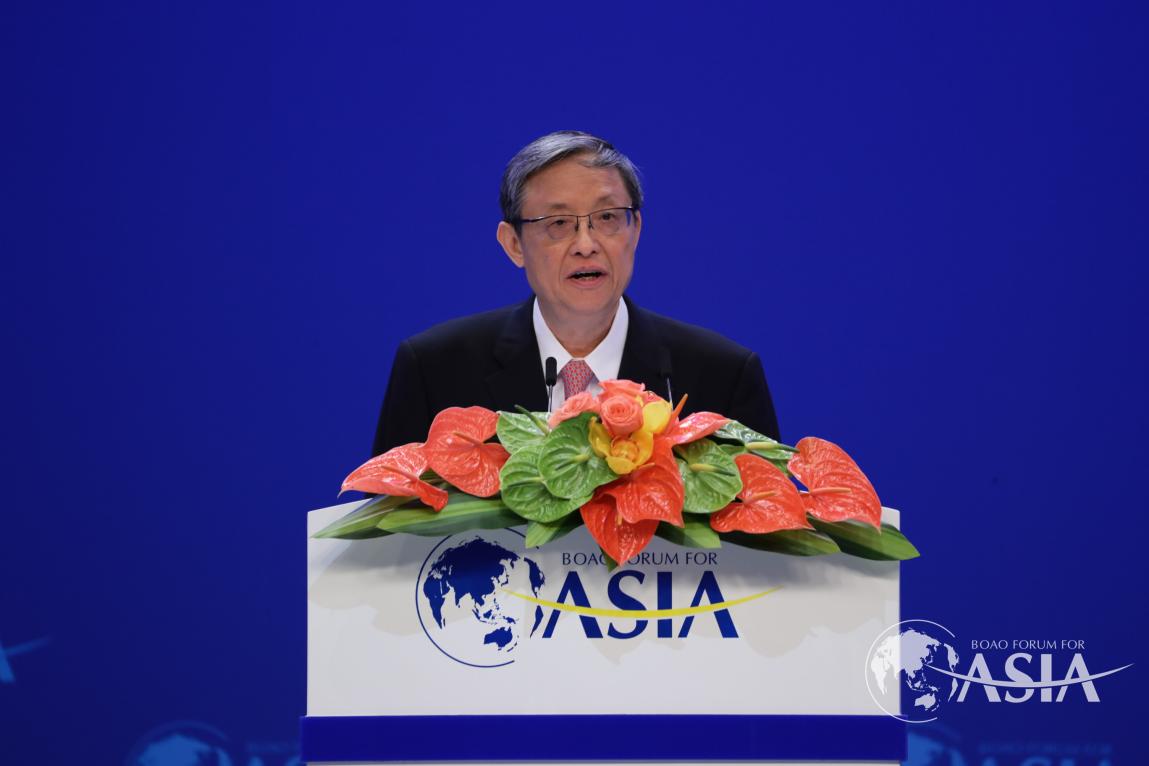
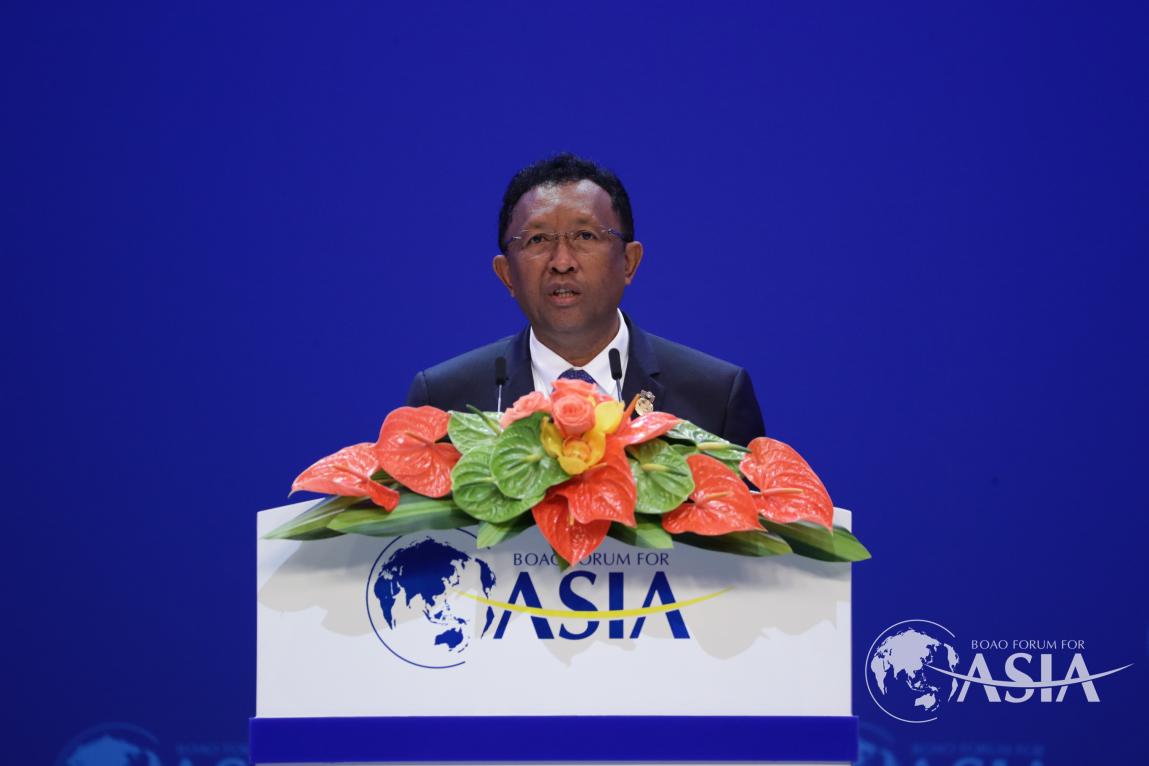
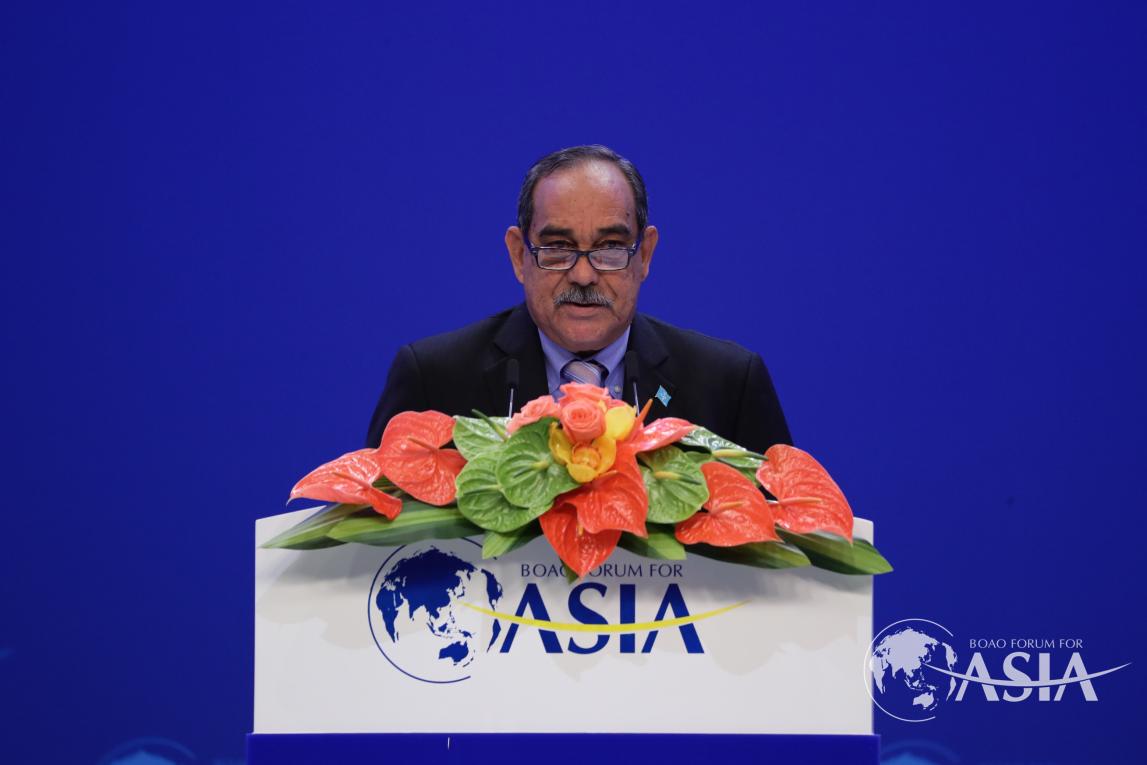
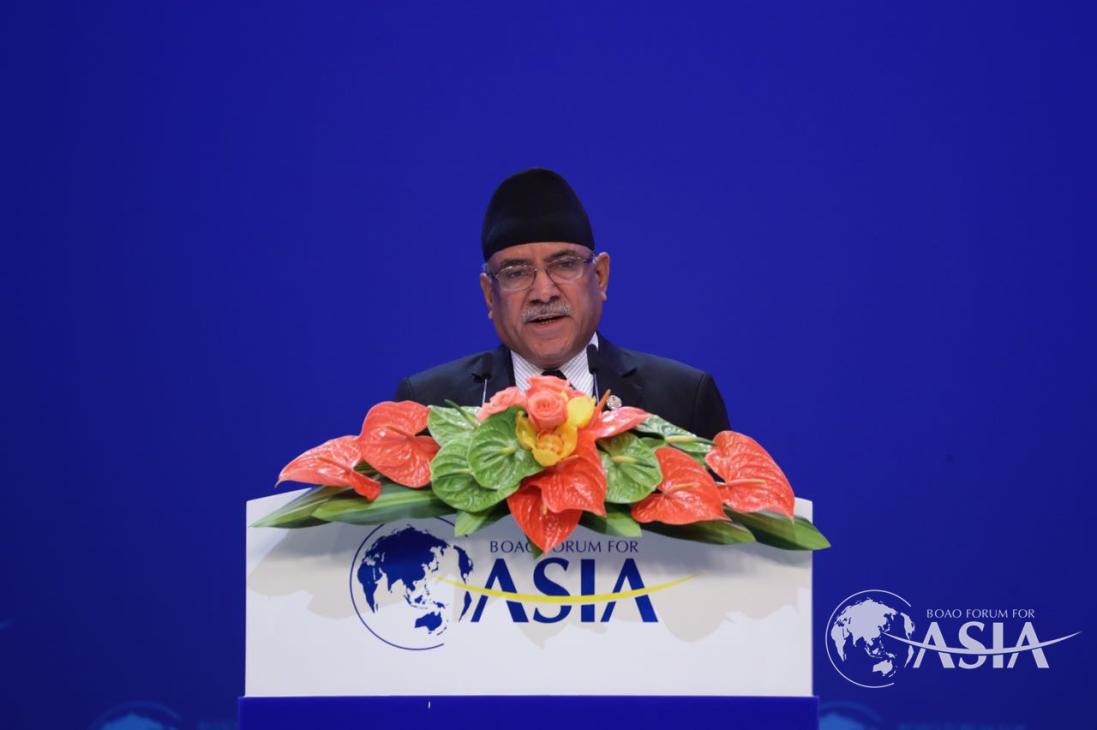
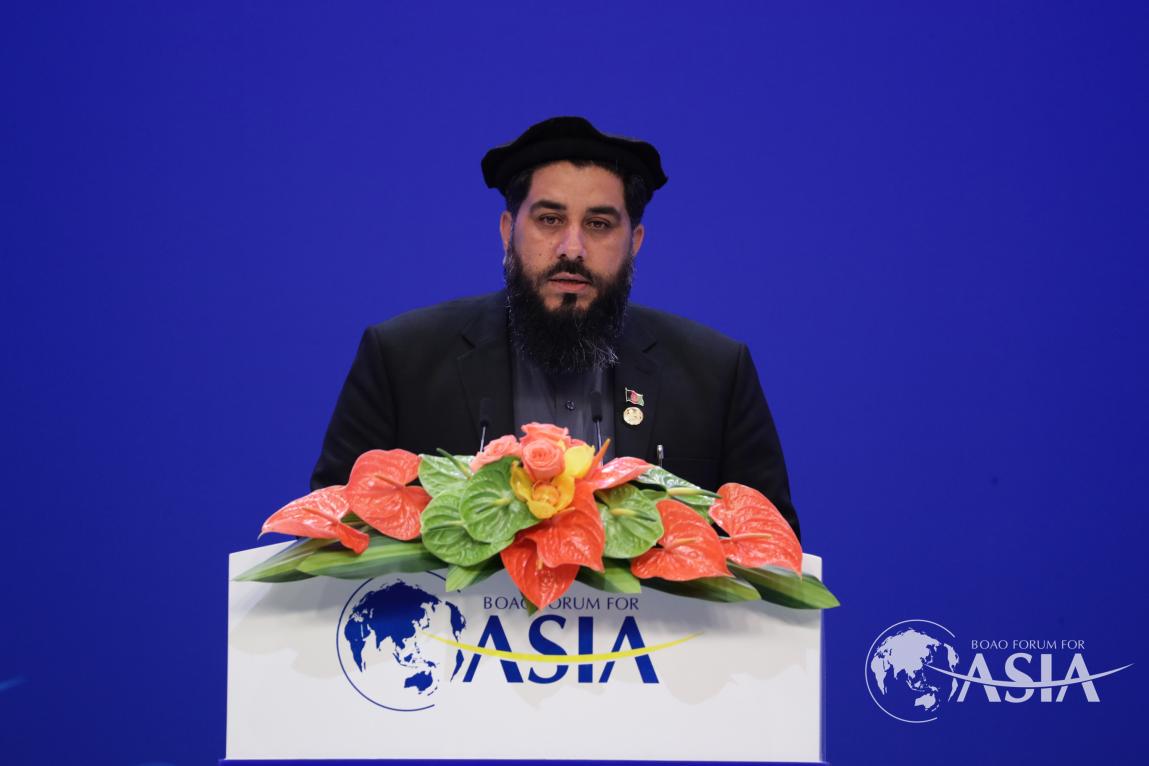
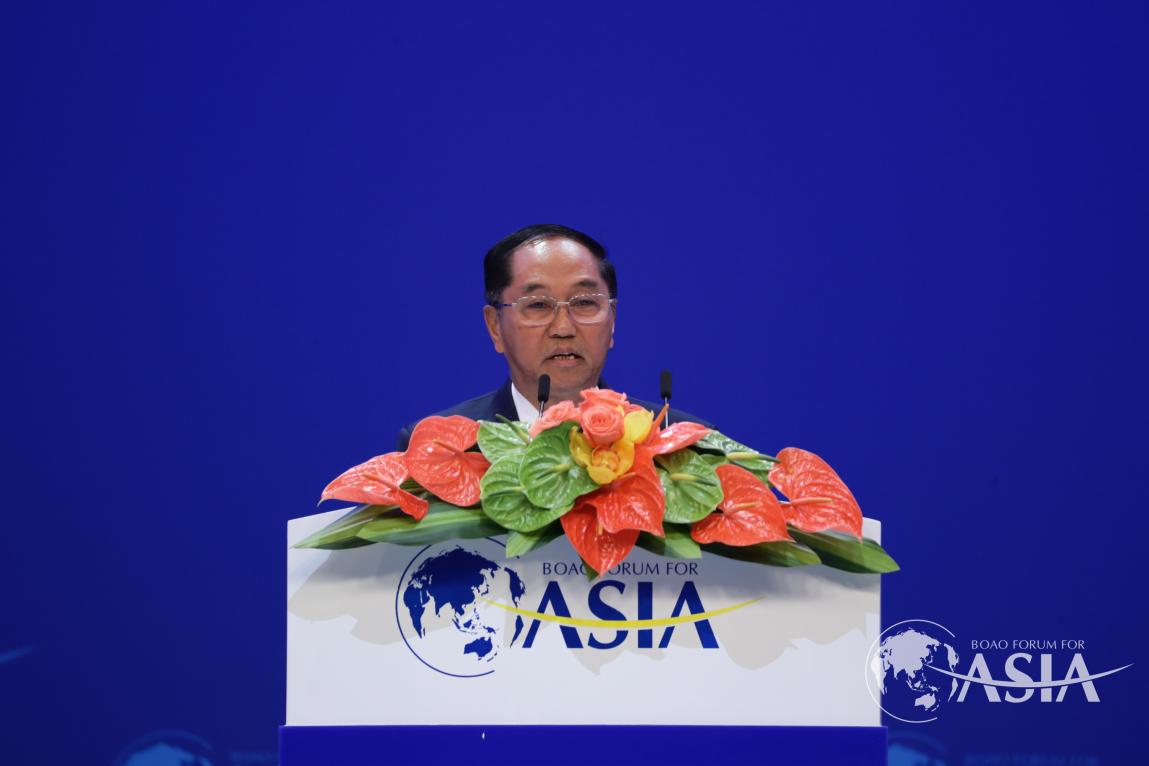
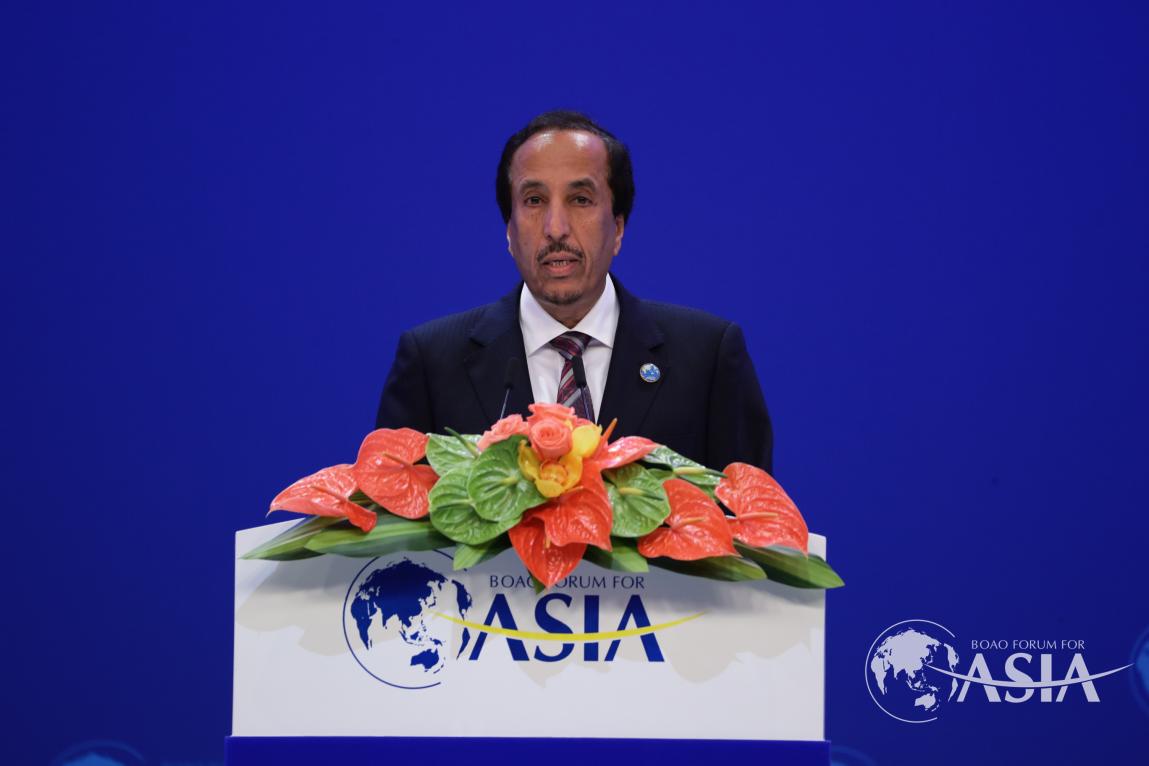
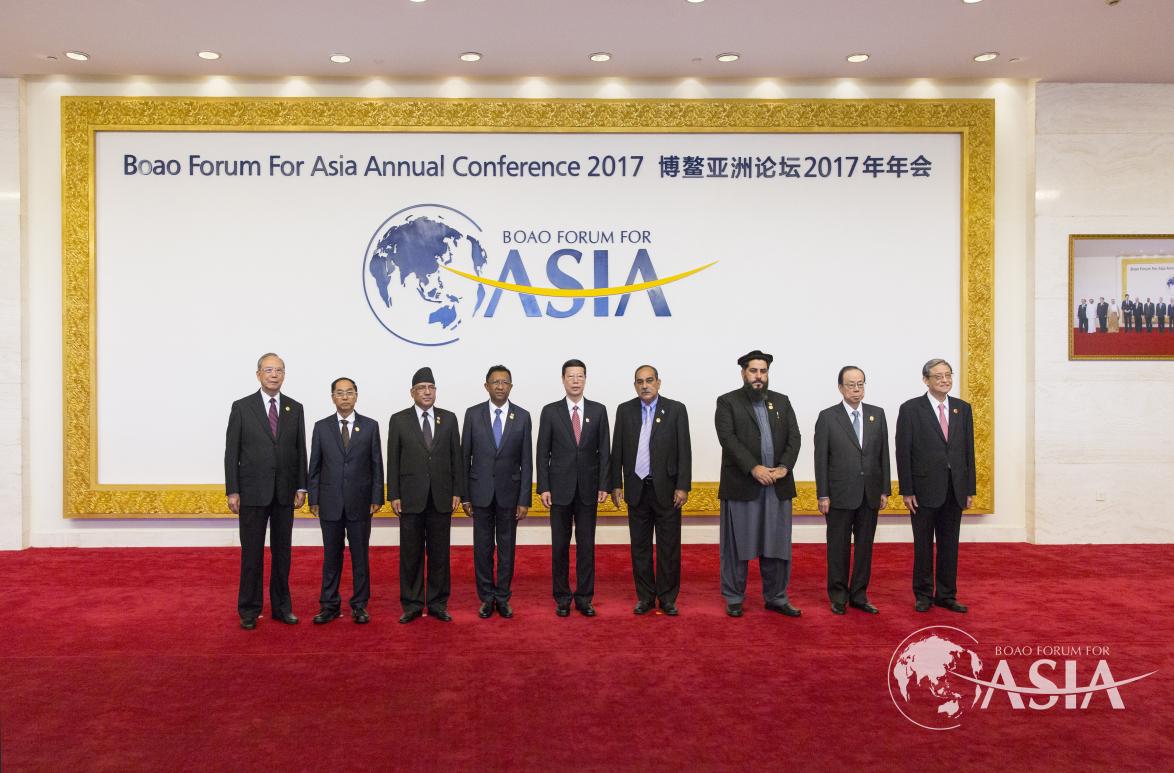
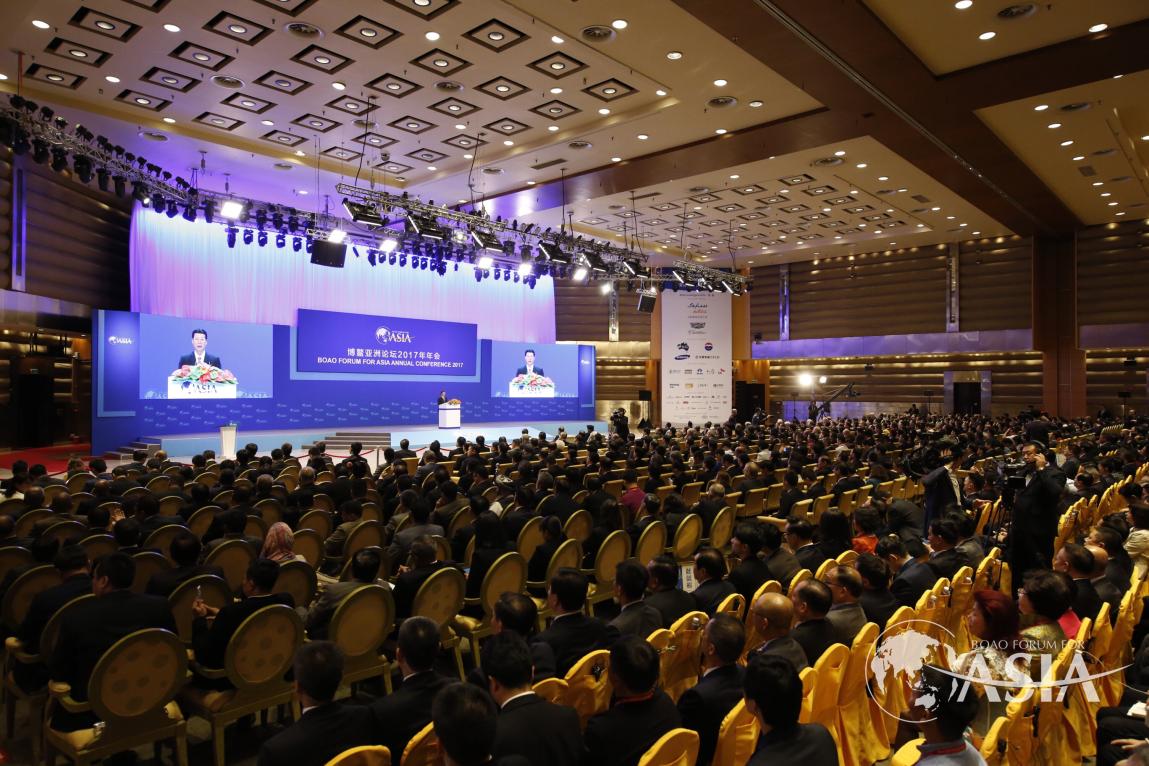
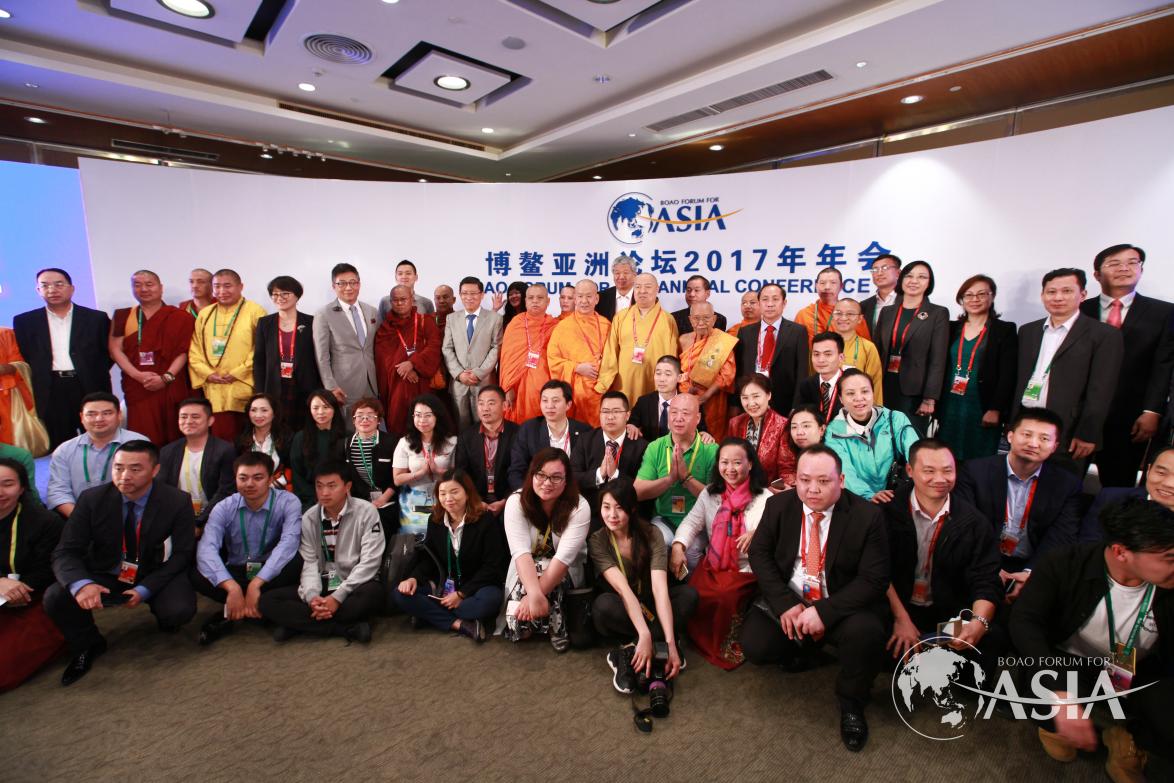
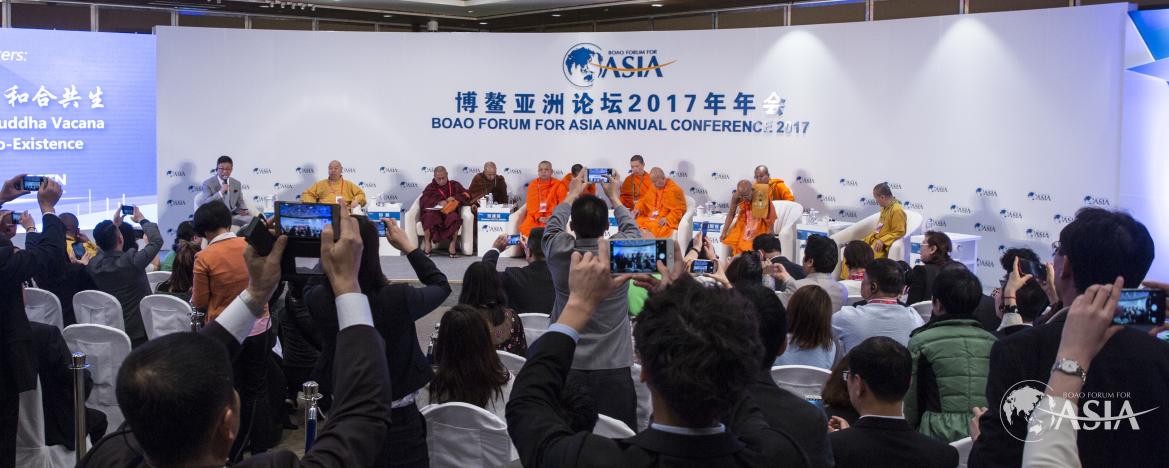
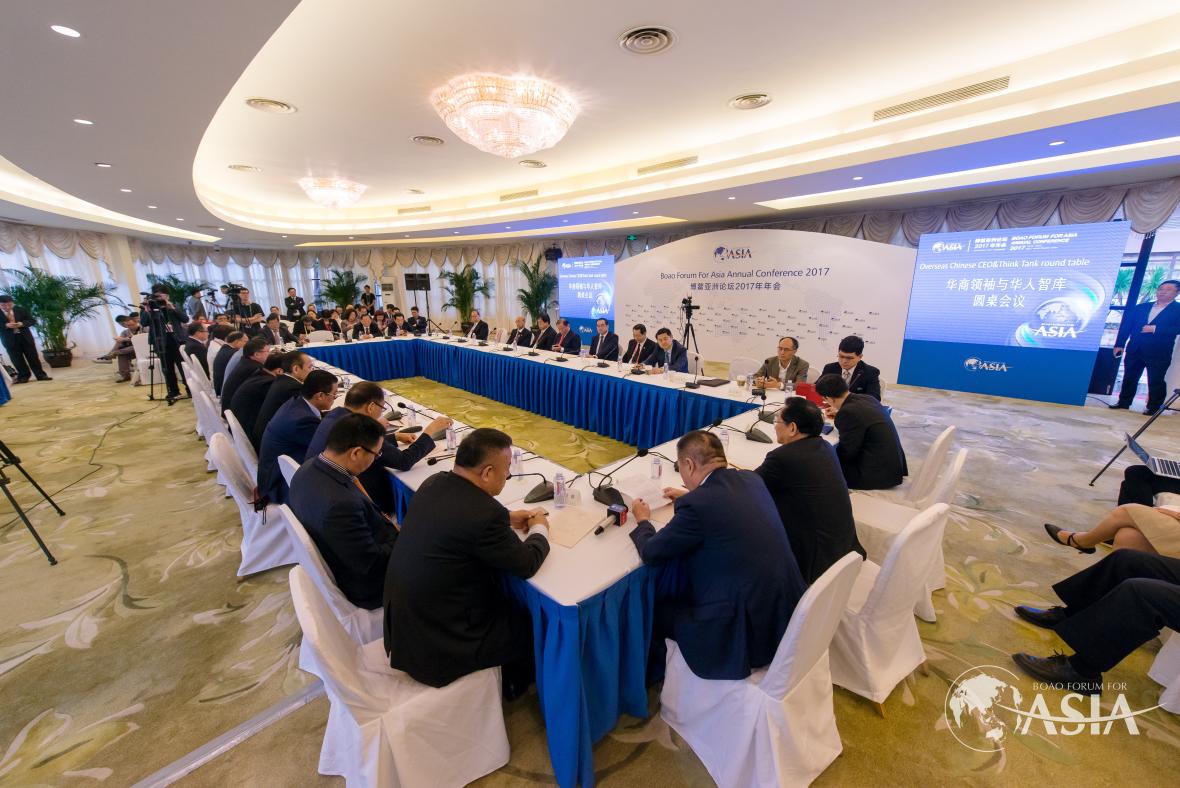
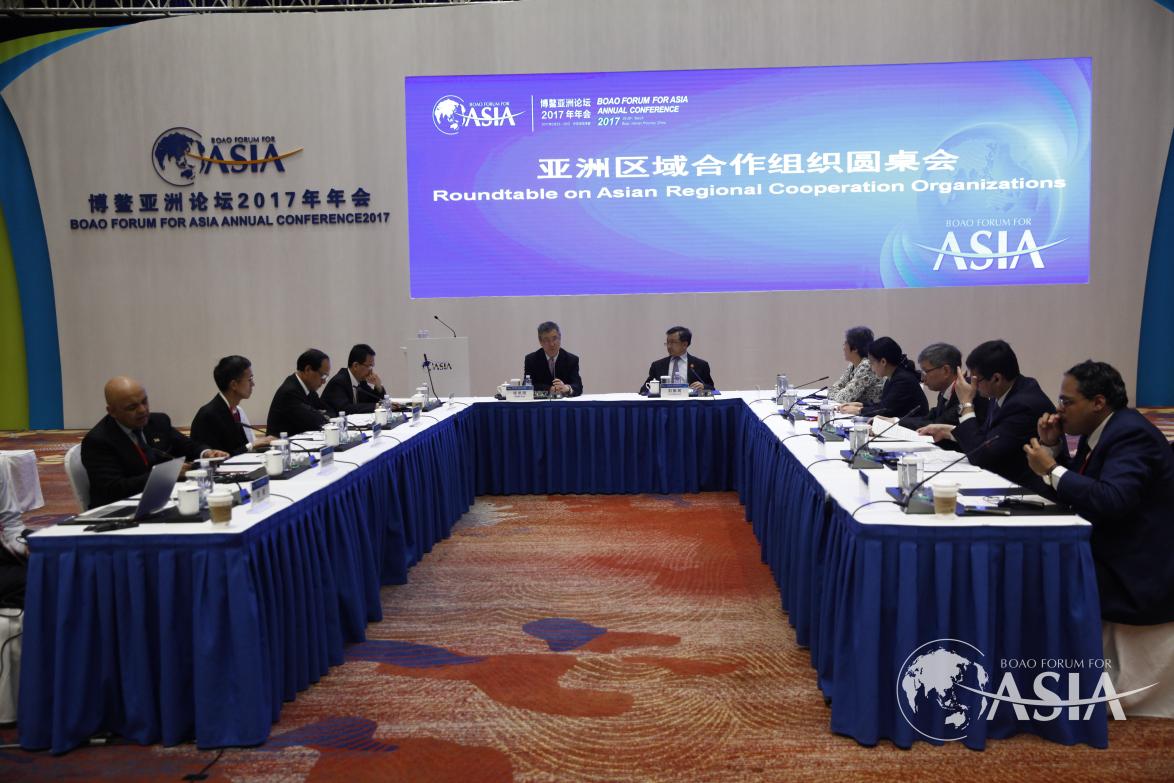
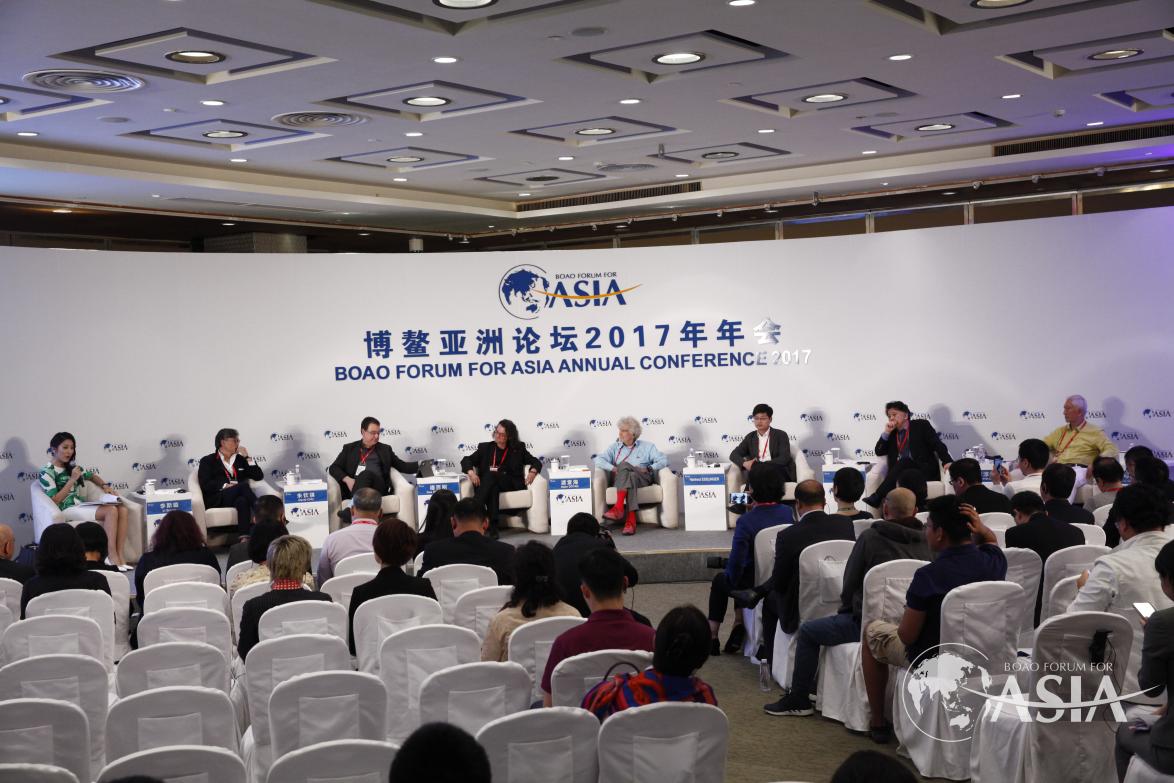
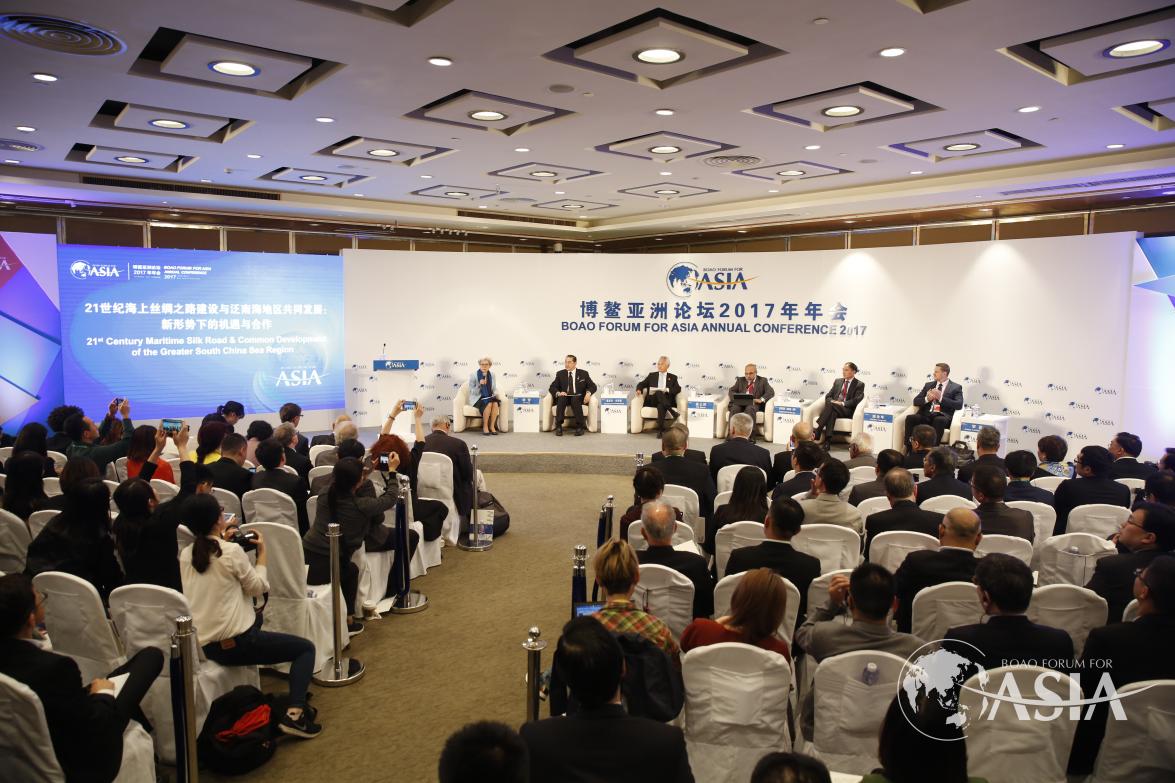
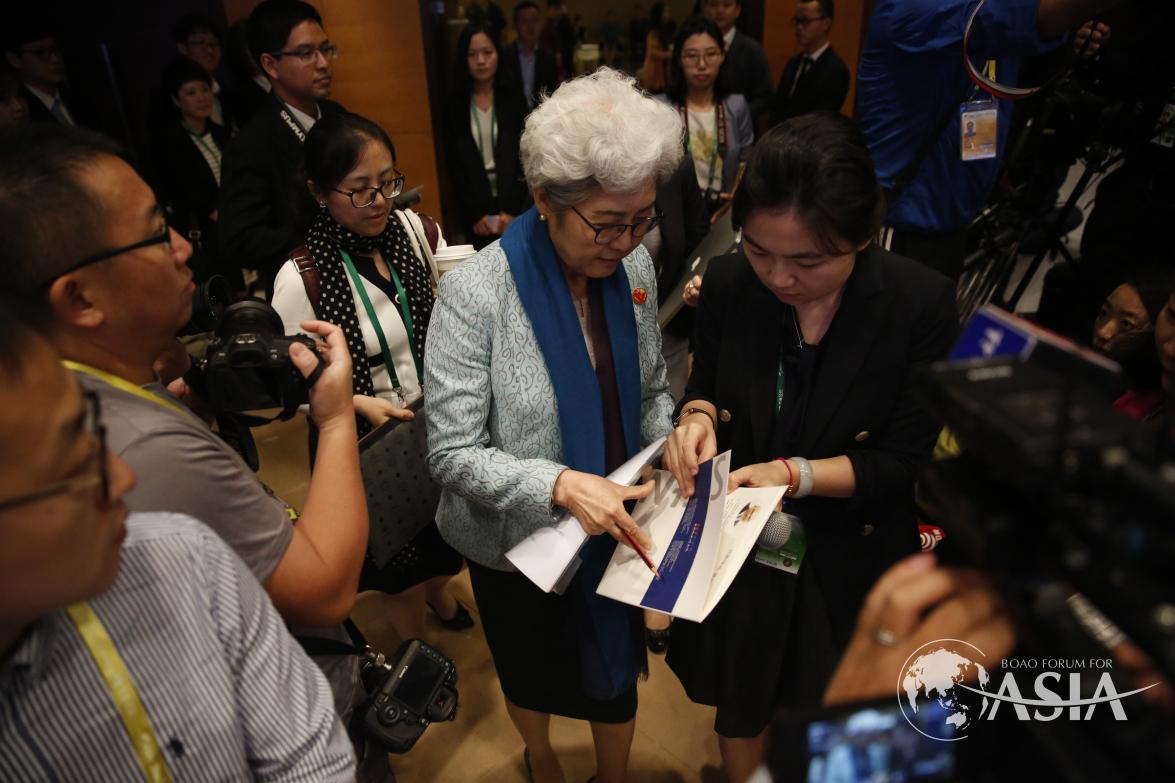
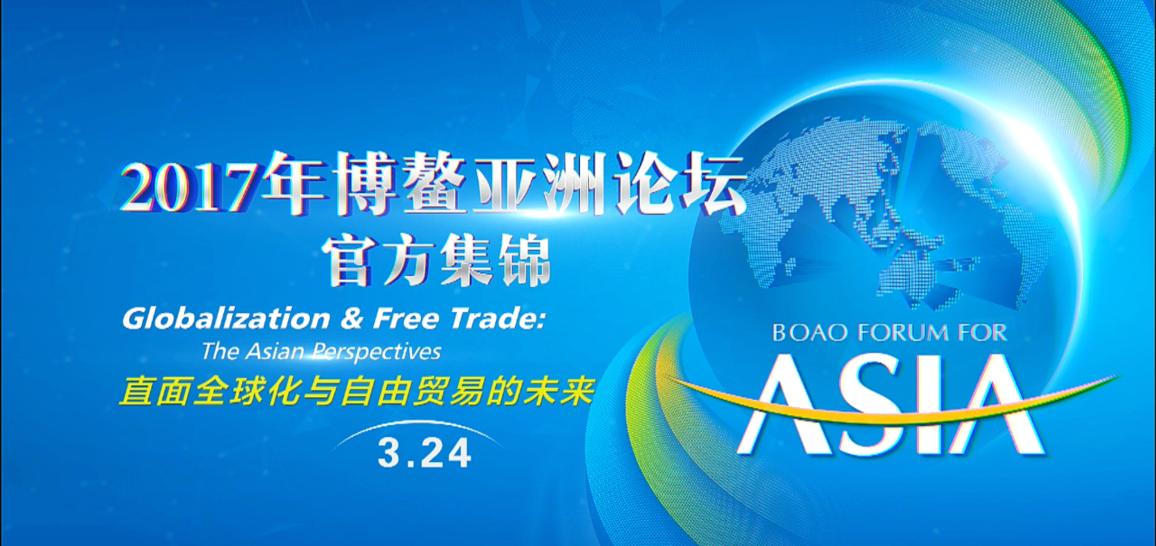

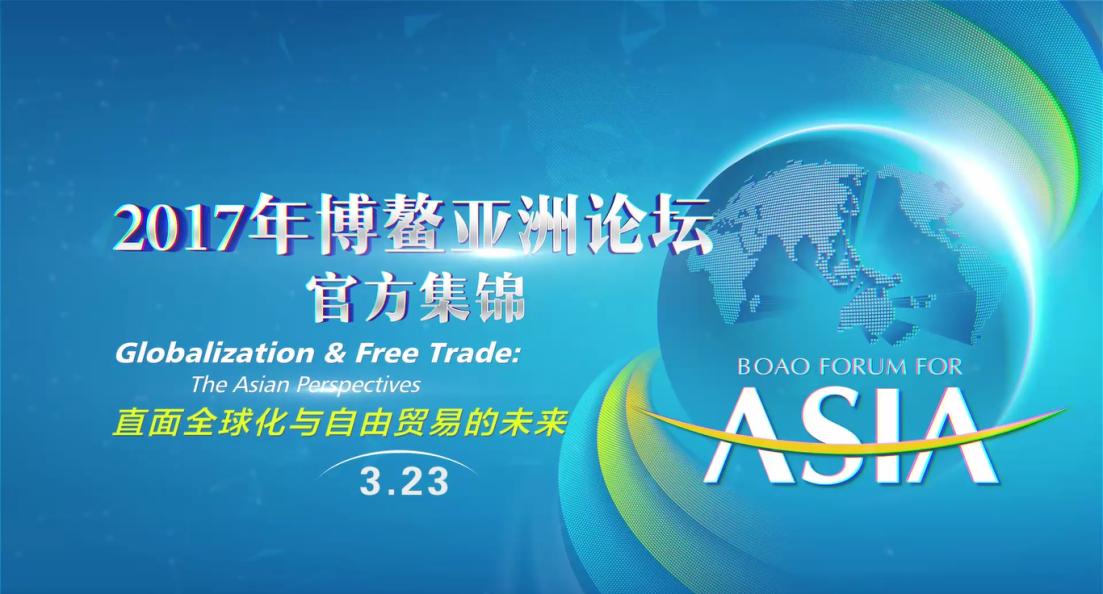
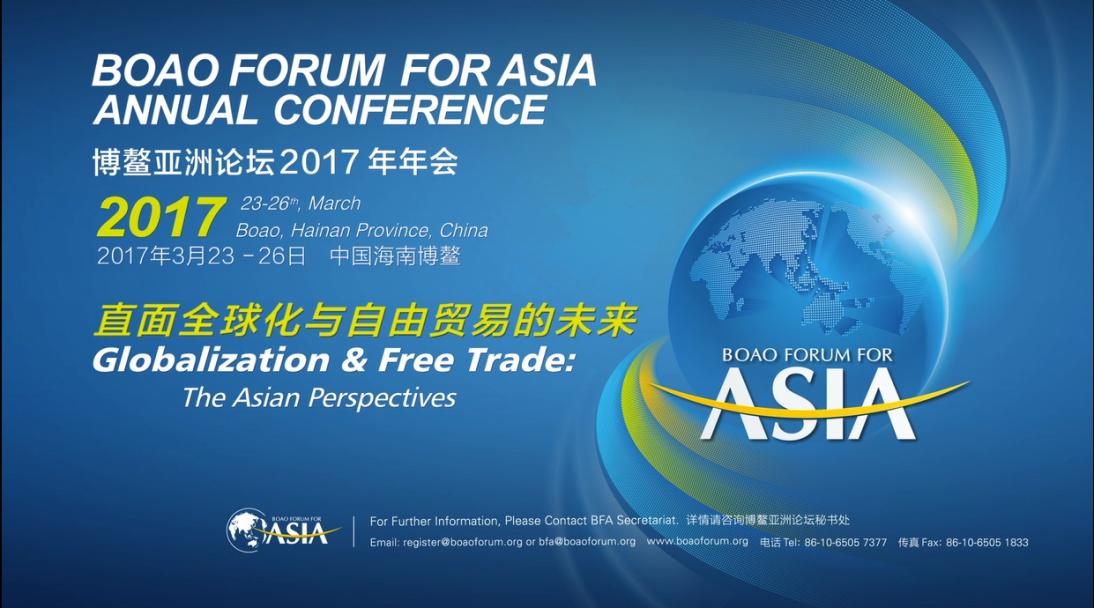
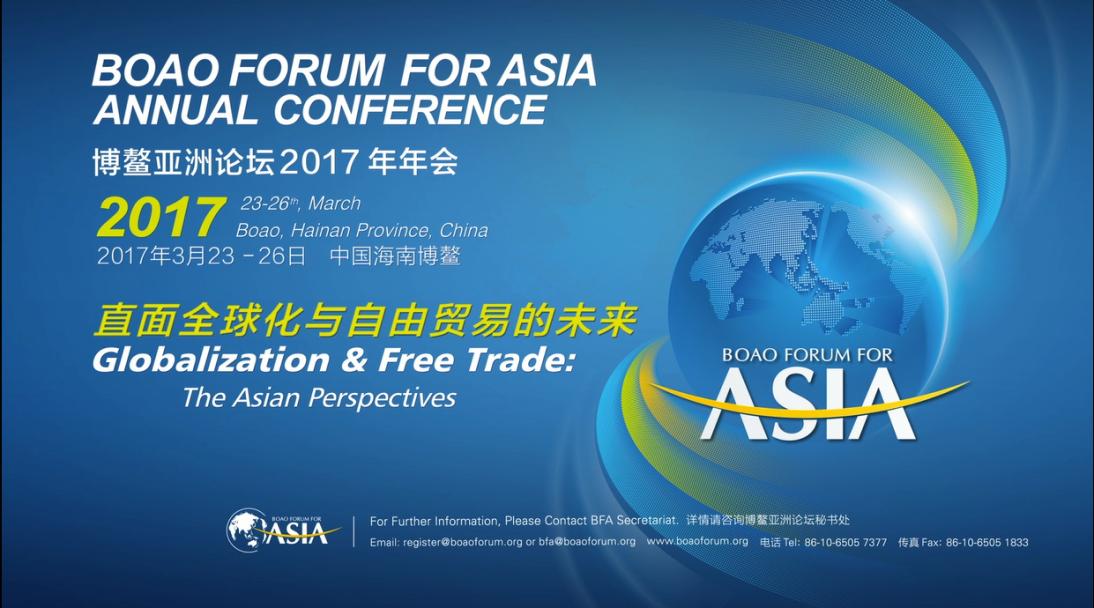
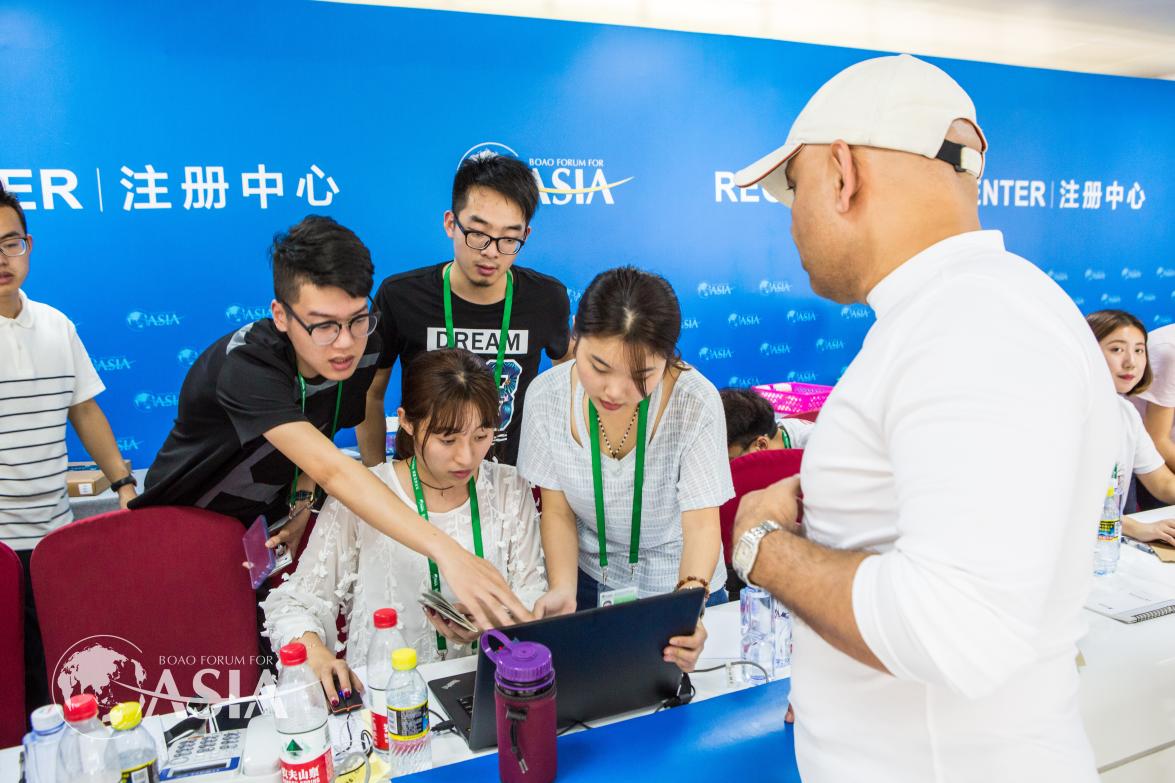
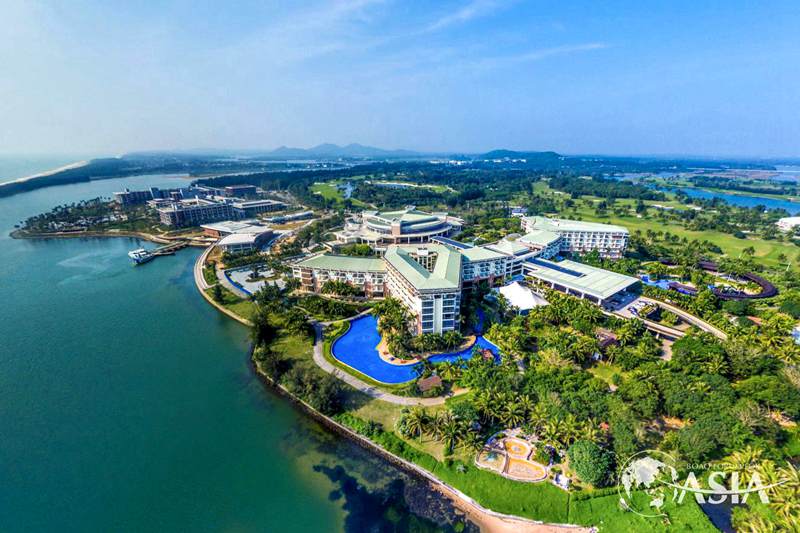
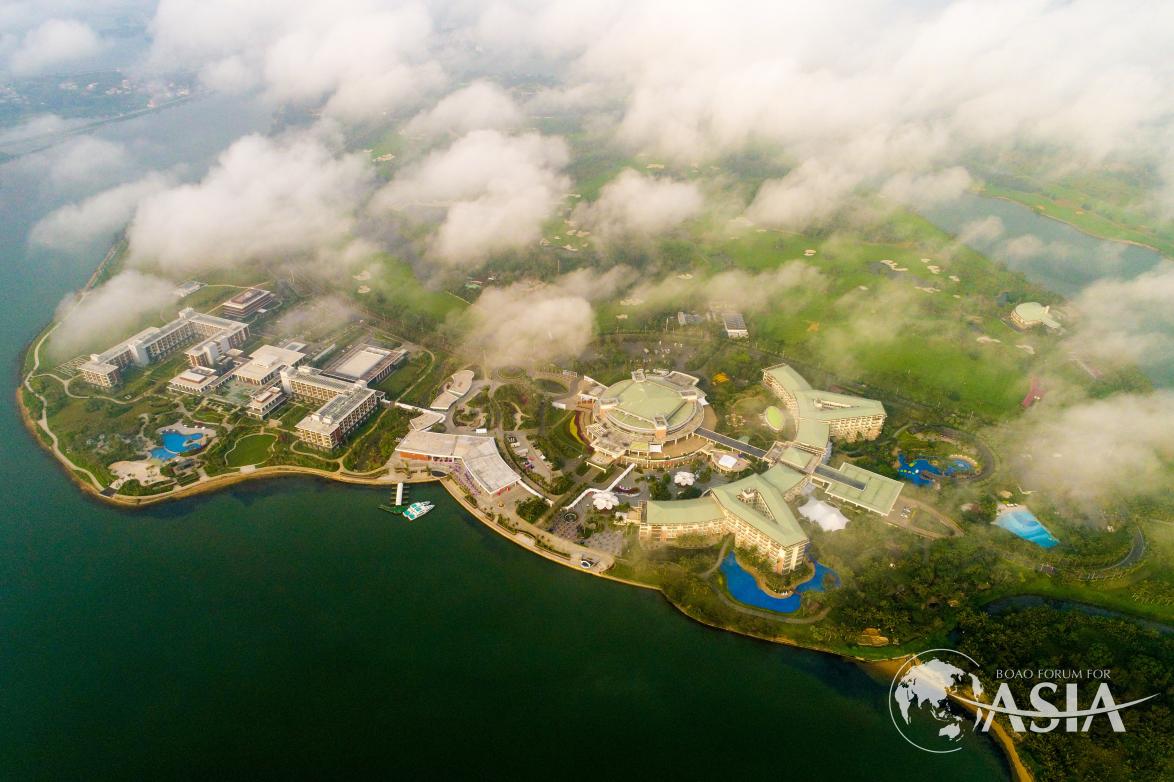
 博鳌亚洲论坛
博鳌亚洲论坛 博鳌通
博鳌通 博鳌通
博鳌通 论坛新浪微博
论坛新浪微博